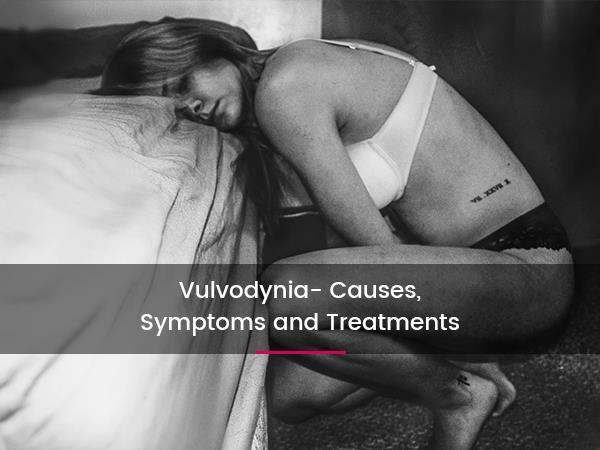The external female genital area is called the vulva. Pain that affects this area is very common. Vulvodynia is pain that lasts for 3 months or longer and is not caused by an infection, skin disorder, or other medical condition. Vulvodynia most commonly is described as burning, stinging, irritation, and rawness. Aching, soreness, throbbing, and swelling also may be felt. The entire vulva may be painful or pain may be centered in a specific area. Symptoms of vulvodynia may be constant or they may come and go. Symptoms can start and stop without warning, or they may occur only when the area is touched.
Causes of Vulvodynia:
Vulvodynia is likely caused by many factors working together. Some of these factors include the following:
- Damage or irritation of the nerves of the vulva
- Inflammation of the vulva
- Long-term reactions to certain infections
- Certain genetic disorders
- Sensitivity to certain foods
- Dysfunction of the muscles of the pelvic floor
- Conditions that affect nearby muscles or bones
How to diagnose it?
If you have vulvar pain, your gynecologist or other health care professional will try to rule out the most common causes of vulvar pain first. You may be asked questions about your symptoms, sexual history, and medical and surgical history. You may be asked when symptoms occur, what treatments you have tried, and whether you have any allergies, chronic infections, or skin problems.
Your gynecologist also will examine the vulva and vagina carefully. A sample of discharge from the vagina may be taken. Your gynecologist may use a cotton swab to touch areas of the vulva. The goal is to find where the pain is and whether it is mild, moderate, or severe. You also may have a biopsy of the vulvar skin.
How to treat it ?
Many kinds of treatment are available. No one method works all the time for everyone. It can take a few months before any relief is noticed. Sometimes more than one treatment may be needed. Keeping a pain diary can help you track your symptoms and how they respond to different therapies. In some cases, your gynecologist or other health care professional may refer you to a pain specialist. A pain specialist may use techniques such as ultrasound and electrical stimulation to relieve pain.
What are some steps that you can take to get relief from the pain?
If you have vulvodynia, gentle care of the vulva is best. Avoid products and other items that may be irritating. The following may be helpful in relieving or reducing symptoms:
- Wear 100% cotton underwear
- Do not wear underwear while sleeping
- Avoid douching
- Avoid irritants, such as perfumes, dyes, shampoos, detergents, and deodorants
- Clean the vulva with water only
- Switch to 100% cotton pads if regular pads are irritating
- Use lubricants during sex, but avoid lubricants with flavor or cooling/warming sensation
- Rinse and pat the vulva dry after urinating
- After bathing, apply a thin layer of a preservative-free oil or petroleum jelly to hold in moisture and protect the skin
- Avoid using a hair dryer to dry the vulvar area
- Use cool gel packs on the vulva
Dr. Nita Thakre, Gynecologist from OoWomaniya.com Doctor Panel, tells you about the much less discussed topic of smelly vaginal discharge, itching & intimate hygiene. – what causes vaginal discharge and how to prevent it.
Check out the video –







,